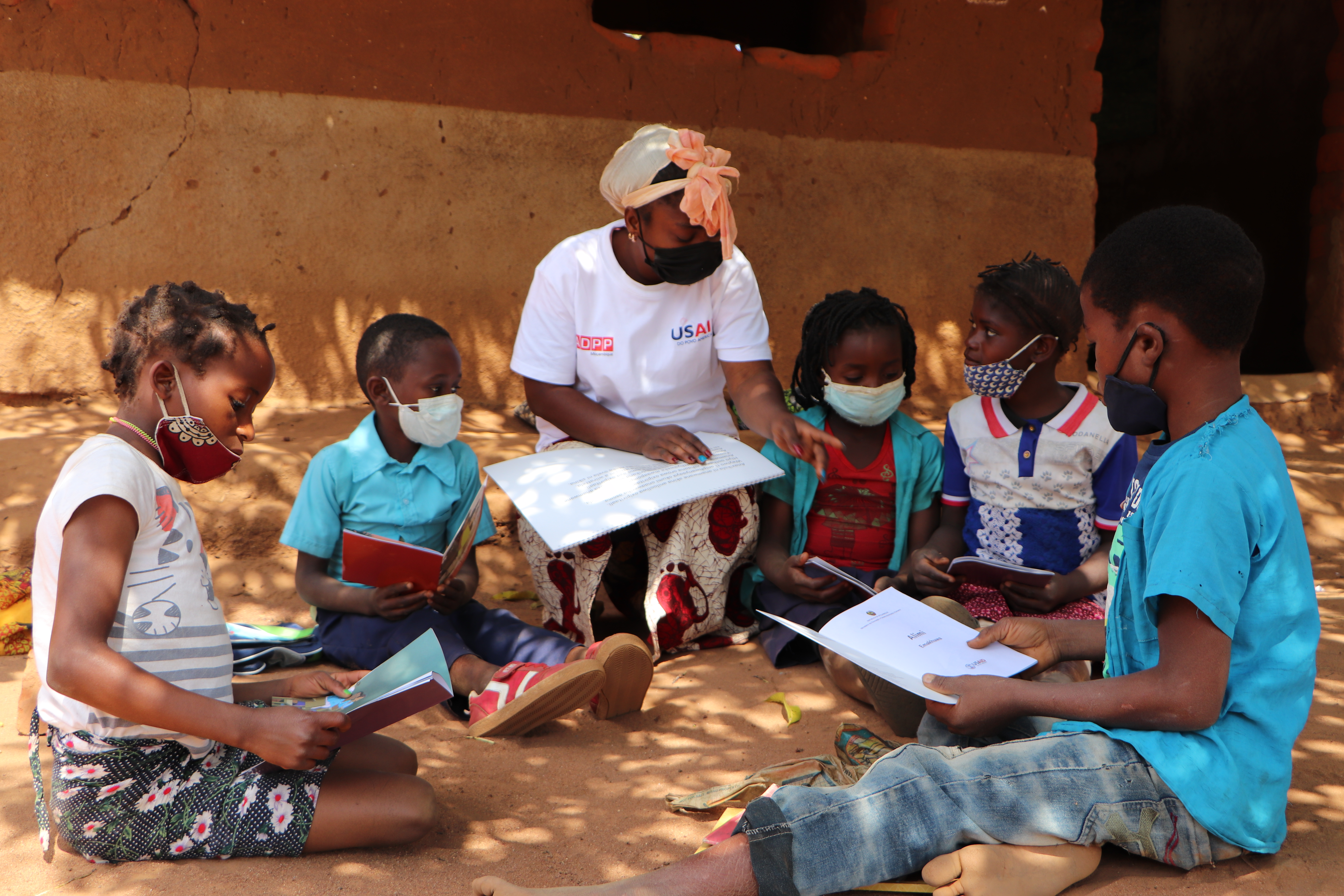World Teacher’s Day is Tuesday October 5, 2021! In celebration of all the dedicated teachers across the world, during the month of October, Planet Aid will spotlight a range of notable educational projects implemented by our local partners across the globe. We will start in Mozambique, located in Sub-Saharan Africa and with a project is called Apoiar a Ler!
The Portuguese term “apoiar a ler” means “support to read.” This support is significant considering that only a little more than one-third of children in this region achieve a basic level of reading before they leave school. The project, led by local organization ADPP Mozambique and funded by United States Agency for International Development (USAID), is working with providing a better quality of education in 750 primary schools in Nampula Province in northern Mozambique.
The situation for children in Mozambique is challenging. Mozambique has seen a significant rise in primary school education enrollment over the past decade. Yet quality and improvement in learning has lagged behind. Poverty and HIV & AIDS is fueling an increase in the number of orphaned children. According to UNICEF’s article on child protection in Mozambique, there are approximately 2 million orphans in the country. Additionally, 700,000 more are at risk of abandonment, “due to their caregivers’ old age, HIV in the family and/or deteriorating socio-economic circumstances.” In these cases and others, many children enter the workforce early in order to survive.
The Borgen Project states, “Poverty is a big contributor to the standards of education, as many children aged 14 must work rather than go to school. The children have to earn money for their families since resources can be spread so thin.” In addition, girls tend to drop out of school at an early age to get married and start families of their own. According to USAID, “While 94 percent of girls in Mozambique enroll in primary school, more than half drop out by the fifth grade, only 11 percent continue on to study at the secondary level, and just 1 percent continue on to college. Among children who finish primary school, nearly two-thirds leave the system without basic reading, writing, and math skills.”
However, ADPP Mozambique is leading the way with the Apoiar a Ler! project. The organization is creating awareness about the importance of early access to learning local languages (for reading, writing, and mathematics). Moreover, ADPP addresses gender inequality in education, and gender-based violence and prevention of early-age marriage. All are challenging societal topics.
The Apoiar a Ler! project started in July of 2020 with the mission to encourage parents and caregivers to take on a more significant role in the schooling of their children, while more broadly mobilizing the community and key local stakeholders to create a safe and supporting school environment for children. . The project will continue through 2023, with the goal of reaching about 350,000 children, 700,000 family members from beneficiary children, 7,500 community leaders, 12,000 teachers and 3,750 volunteers in the “Passionate about Learning” community.
At the end of the first year and after the start of the project’s activities, results are positive. The set of activities carried out comprehensively mirror the objectives of the annual plan of activities. Passionate community mobilizers are now playing a much-needed role by taking the project to the communities. They are responsible for mobilizing and engaging parents, guardians and local leaders.
Thanks to community mobilization actions: home visits, the promotion of songs, reading clubs, and lectures with parents and guardians—program participants look at their children's education in a different way..
Felismina Mendonça, a mother and guardian from the primary school “EPCNhotua of the Mirotti said, “I am very happy to be part of the School Council and at the same time participate in the lectures that the Apoiar a Ler!project has been promoting in our community. Now we are clearer about our role in our children's learning. Before, I didn't feel I could make a difference in the education of my child, but now my role is clear,” she says.
The project’s endorsement extends to educational leaders like Marques Macama, President of the Board of the primary school “Completa de Nhotuana. He agrees that the bond between community and school has improved the quality of education of the children.
Macama states, “We work in close collaboration with the school with the unique objective to support all children staying in school and learning to read.” Macama added, “We have consultation meetings with the school itself where we go through the student attendance lists. Once we identify that a student is missing, we locate the child and work towards returning them to school. It hasn't been an easy job, but little by little we are getting acceptance from almost all parents.”
The acceptance of the Apoiar a Ler! project has led to an overall behavioral change connected to the education of children in Nampula Province. This is probably the most important goal to sustain. For more information about the Apoiar a Ler! project, contact us.
This article was written in partnership with Planet Aid


